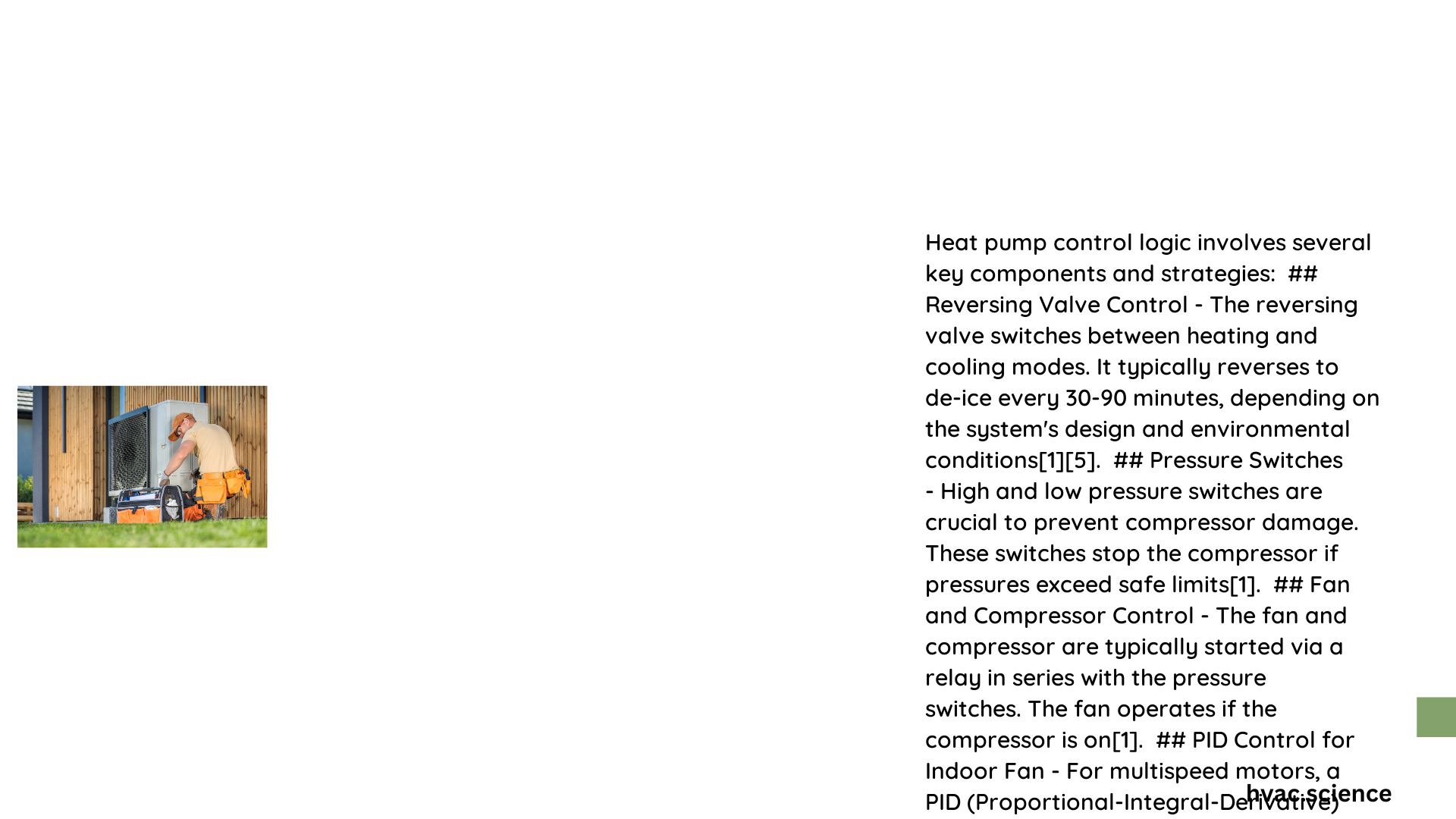Heat pump control logic represents a sophisticated approach to managing thermal energy systems, integrating advanced algorithms, predictive modeling, and adaptive learning techniques. By dynamically analyzing external temperature, electricity prices, building thermal characteristics, and performance coefficients, modern heat pump control systems optimize energy consumption, reduce operational costs, and maintain precise temperature management across diverse environmental conditions.
What Makes Heat Pump Control Logic Critical?
Heat pump control logic is a complex technological framework designed to maximize system performance through intelligent decision-making processes. Unlike traditional heating and cooling systems, these advanced control mechanisms continuously adapt to changing environmental and operational parameters.
How Do Algorithms Drive Heat Pump Performance?
Model Predictive Control (MPC) Strategies
Model Predictive Control represents a cutting-edge approach in heat pump control logic, characterized by:
- Predictive Forecasting: Integrates weather predictions and electricity price data
- Dynamic Parameter Adjustment: Modifies system operation based on real-time conditions
- Efficiency Optimization: Maximizes coefficient of performance (COP)
| Control Parameter | Optimization Focus | Performance Impact |
|---|---|---|
| Thermal Mass | Building Heat Retention | Energy Efficiency |
| Electricity Prices | Cost Management | Operational Expenses |
| Weather Forecast | Proactive Adaptation | Comfort Maintenance |
What Techniques Enhance Heat Pump Control Logic?
Performance Maximization Approaches
- Secondary Fluid Flow Rate Optimization
- Adjusts flow rates to maximize system efficiency
- Utilizes steady-state performance models
-
Analyzes compressor power consumption variations
-
Adaptive Learning Mechanisms
- Collects temperature and humidity data
- Learns occupancy patterns
- Automatically adjusts system parameters
What Challenges Exist in Implementation?
Key Implementation Considerations
- Complex Algorithm Development
- System Compatibility
- Initial Investment Requirements
- Integration with Existing Infrastructure
How Effective Are Advanced Control Strategies?
Measurable Performance Metrics
- Energy Consumption Reduction: Up to 25% improvement
- Operational Cost Savings: 6.65% – 12.5% reduction
- Carbon Emission Decrease: Potential 54% reduction compared to traditional systems
What Technologies Support Heat Pump Control Logic?
Critical Technological Components
- Smart temperature sensors
- Advanced microprocessors
- Machine learning algorithms
- Real-time data processing systems
What Future Developments Are Anticipated?
Emerging Trends
- Enhanced AI-driven predictive models
- More granular energy management
- Increased grid integration capabilities
- Improved renewable energy compatibility
Conclusion

Heat pump control logic continues to evolve, offering increasingly sophisticated methods for managing thermal energy systems. By leveraging advanced algorithms, predictive modeling, and adaptive learning techniques, these systems represent the future of efficient, intelligent climate control.
